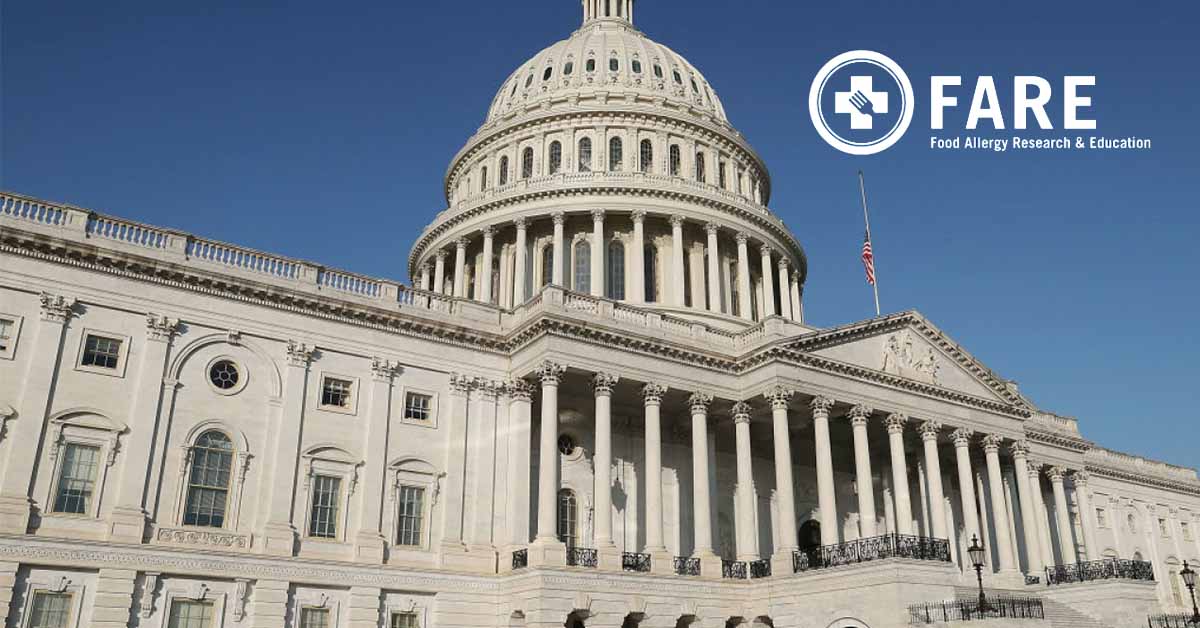New Federal Bill Would Cap the Cost of Epinephrine Auto-Injectors at $60 Per Two-Pack
January 11, 2024 (McLean, VA) – Today, FARE (Food Allergy Research & Education) endorsed Rep. Maxwell Alejandro Frost’s (D-FL-10), newly introduced Epinephrine’s Pharma Inflated Price Ends Now Act or the “EPIPEN Act” which would cap the cost of all epinephrine auto-injectors at $60 per two-pack. Rep. Frost is the only Gen Z member of the U.S. House of Representative and suffers from life-threatening food allergies.
“On behalf of the more than 33 million Americans with potentially life-threatening food allergies who rely on epinephrine auto-injectors to stay alive, FARE is grateful for Rep. Frost’s leadership in introducing legislation that would cap the costs our community pays for their epinephrine auto-injectors,” said Sung Poblete, PhD, RN, CEO of FARE. “We proudly endorse this bill, will support it on Capitol Hill, and encourage other U.S. House members to cosponsor this legislation.”
With the cost of a brand name EpiPen ranging from $650 to $730 depending on the pharmacy and the generic version costing between $320 and $750, many Americans cannot simply afford the only medicine that can save their lives.
This trend is nothing new as seven years ago, CNN reported that these life-saving devices had increased by more than 400% since 2007.
“There is no reason that epinephrine auto-injectors should cost this much,” said Jason Linde, FARE’s Senior Vice President of Advocacy. “Not when a 2016 CNBC story found that the amount of medicine in an epinephrine auto-injector is worth just one dollar, and the San Jose Mercury News found that it only costs $8 to manufacture an epinephrine auto-injector two-pack.”
Making matters worse for food allergy families is the rise of high-deductible health insurance plans that require individuals and families to pay out-of-pocket costs ranging from $1,500 to $3,000 or more before coverage begins. This is particularly difficult for the 55.7% of Americans, as of 2021, who are in these plans as this recent NBC News story summarized the problem succinctly, “Even as the cost of EpiPens and other epinephrine auto-injectors have stabilized, many are paying thousands of dollars out of pocket each year due to high-deductible insurance.”
Said Linde, “This means for a family with an eight-year-old girl with a peanut allergy, they must purchase, each and every year, at least two packs of epinephrine auto-injectors, one for at home, and the other at school, which means that their total cost is $1,400 which in many areas of the country is equal to or more than a family’s mortgage payment.”
While some have argued that price caps would harm innovation, the EpiPen has not changed in years nor has competition driven down the price – in fact, the opposite has occurred since the product was first approved by the FDA in 1987.
“Coming on the heels of Colorado, Illinois, New Jersey, and Rhode Island all passing epinephrine auto-injector price cap bills last year, we are grateful and thankful that Rep. Frost has taken action and we, the food allergy community, need to do everything possible to build support for the EPIPEN Act,” concluded Linde.
###
Media Contact: media@foodallergy.org
About FARE: FARE (Food Allergy Research & Education) is the nation’s leading non-profit engaged in food allergy advocacy as well as the largest private funder of food allergy research. FARE’s innovative education, advocacy and research initiatives transform the future of food allergy through new and improved treatments and prevention strategies, effective policies and legislation, and novel approaches to managing the disease. To learn more, visit: www.foodallergy.org.





